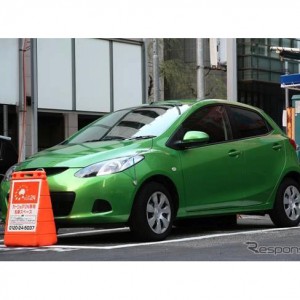
Kyushu Electric Power deploys a carsharing project through collaboration with Fukuoka City and an environmental NGO, West Japan Ecology Network which actively promotes green consumer activities. The car-sharing project using low-emission vehicles was originally suggested by the group in March 2001, and after a year of study, WJEN, Fukuoka City, and Kyushu Electric Power agreed to found a new NGO, the Car Sharing Network (CSN), in May 2002.
CSN launched operations in October 2002 with a special focus on reducing the amount of traffic coming into the Tenjin central business district. The ultimate objective of CSN is to address global warming and to establish an ecological transport system by promoting the sharing of car ownership and usage.
The system is appealing to individual users because it promises them substantial savings over car ownership. It is estimated that if an individual in Fukuoka purchased a new automobile with a 1500-cc engine and sells it five years later, the average monthly cost would be 47,443 yen, whereas if the person joins the CSN and drives a Hyper Mini for 3085 hours per month, the monthly cost would be 19,000 yen.
Salient conclusions of the car sharing system in Fukuoka include the following:
- The creation of new markets is an important policy measure under the system;
- A CSN system using a green power certification system as an economic instrument encourages corporate and other customers to use renewable energy in a voluntary manner for energy conservation and environmental protection. The CSN also started buying power generated by wind, marking the first recorded attempt of a car sharing business to use wind power;
- The CSN as a non-profit cooperative organization was created as a result of the collaboration of an NGO, a city and a private company. The CSN also succeeded in attracting frequent media attention from newspapers, local television stations, journals, etc.; and
- The CSN succeeded in establishing an effective partnership with the local community to locate its stations.
Lessons learned:
- Car sharing operated by collaboration among the government, private companies and an NGO is one possible way to start a car sharing business on a small scale;
- Social acceptance is an essential element for this system to succeed;
- For ensuring continuing interest of users, a good mix of vehicles, particularly lower emission vehicles, is needed; and
- It is also important to provide flexibility in terms of driving range and passenger capacity
Case study courtesy of the UNEP Publication, Reducing Emissions from Private Cars: Incentive measures for behavioural change.